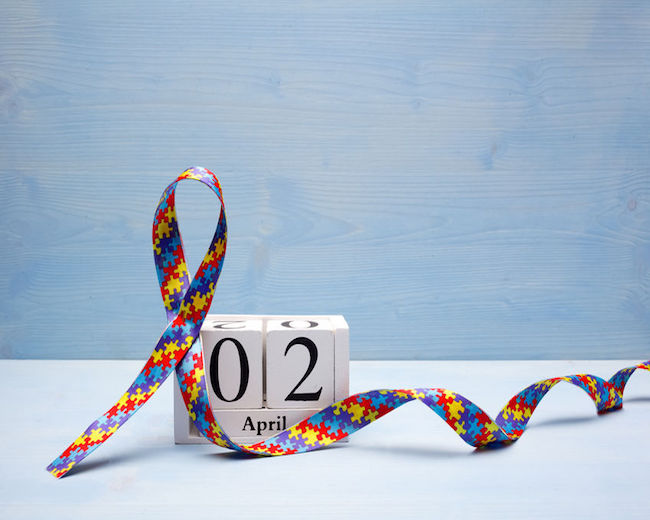5 things all parents should know about autism
As the world marks World Autism Awareness month this April, many misconceptions still surround the condition, feeding stigma and discouraging people from seeking the help and support they need. Autism is not the result of poor parenting or of a mental or spiritual disturbance, nor is it contagious. Here’s what you need to know.
1. What is autism?
Autism spectrum disorder or ASD, as it’s now known, is a complex range of neurodevelopmental conditions now estimated to affect around 1 in 59 children, according to the CDC – and the incidence in South Africa is thought to be the same, according to Professor Petrus de Vries, director of the Centre for Autism Research in Africa at UCT. This is twice the prevalence in 2004, an increase mainly attributed to greater awareness and improved diagnosis. Those with ASD have a variety of symptoms, presenting them in different ways and to different degrees, says Jenna White, applied behaviour specialist and clinical director at The Star Academy for autism and related disorders, which has centres throughout South Africa. ‘Each child is unique, requiring a tailor-made programme addressing their particular needs and specific skills.’ ASD is manageable and treatable, say she and others, with the involvement of families, professionals and the community.
2. How to spot it
Among the most common signs are missing childhood milestones, or achieving them then regressing; not interacting with others; being extremely sensitive to certain textures, sounds, lights, tastes or smells, which can trigger distress or tantrums; disliking being touched or cuddled; disliking changes in routine; displaying repetitive movements (rocking, hand-flapping); self-harming (head-banging, scratching, biting); lacking imaginative play (pretending a Lego block is a car); and fixating on objects (light switches, wheels, clocks). If you notice three or more of these, or simply feel something is not right, speak to your health professional or contact Autism South Africa.
3. What causes ASD?
Parents often blame themselves, but autism is no one’s fault, says Vicky Lamb, education facilitator for Autism South Africa. The causes are still not clear, but are thought to be mostly genetic, though research suggests environmental factors may play a role in triggering an underlying vulnerability. In a major study of children from five countries published in the journal JAMA Psychiatry, researchers estimated the heritability of ASD to be about 80%. According to Harvard Health publications, infections or nutritional deficiencies (such as folic acid) in early pregnancy, exposure to chemical pollutants, taking certain antidepressants when pregnant, or complications at birth may contribute to autism. Some studies have suggested links between autism and high consumption of processed foods by mothers, and a lack of certain gut bacteria. For all the controversy around vaccinations, there is no scientific evidence that they cause autism, and this has been confirmed by health bodies from the US Centers for Disease Control to the World Health Organization.
4. How is ASD diagnosed and treated?
There’s no laboratory test that can detect ASD, so medical professionals make the diagnosis based on behavioural and developmental observations. Interventions and therapies can help individuals and families with the management of autism and the difficulties faced, says Lamb, and range from speech therapy and occupational therapy to social skills training. The earlier these are started, the better: "Never just wait and see," she says
5. Where can parents get help?
Speak to your health professional, or Austism SA can direct you to an autism screening and diagnostic evaluation, and to intervention and counselling services, and offers support to families: call 011 484 9909, email [email protected] or visit the Autism SA site.



